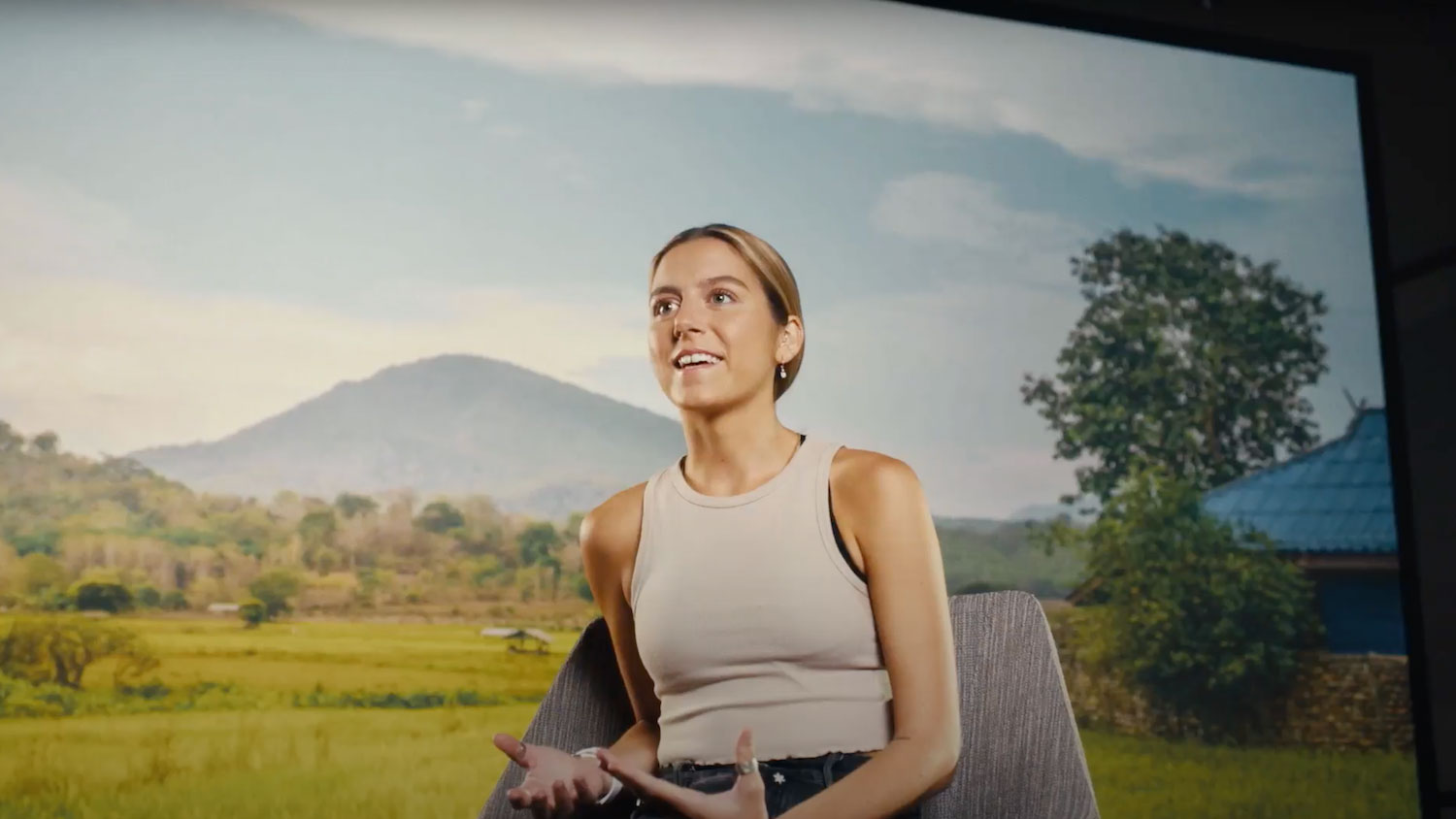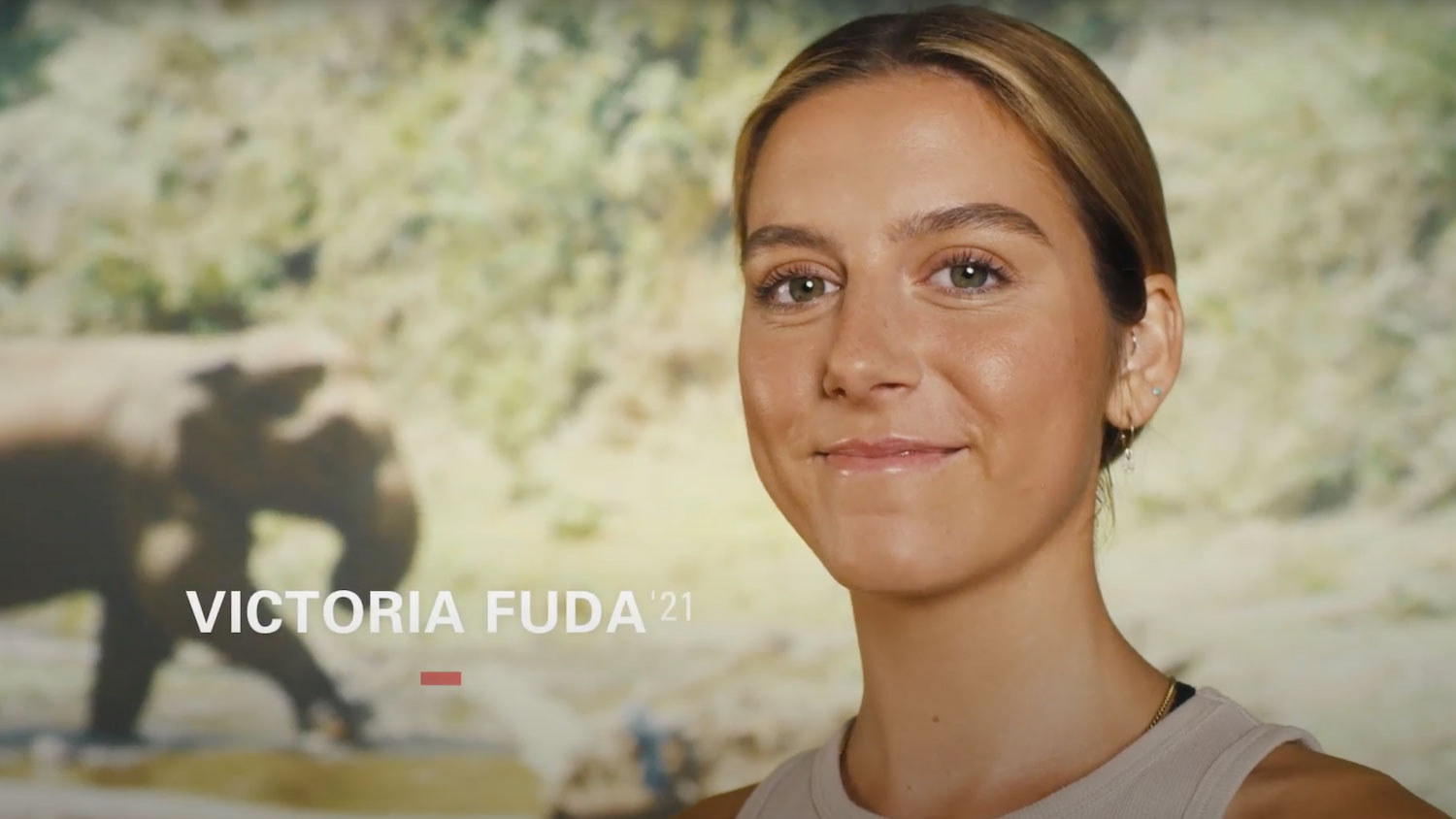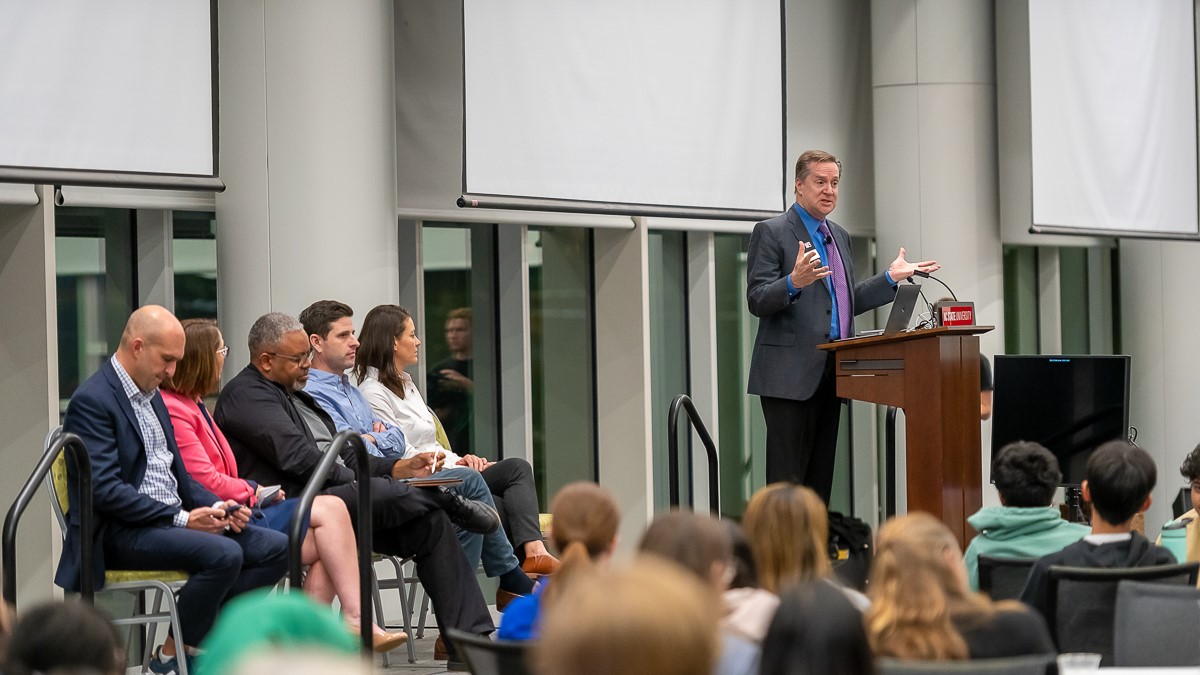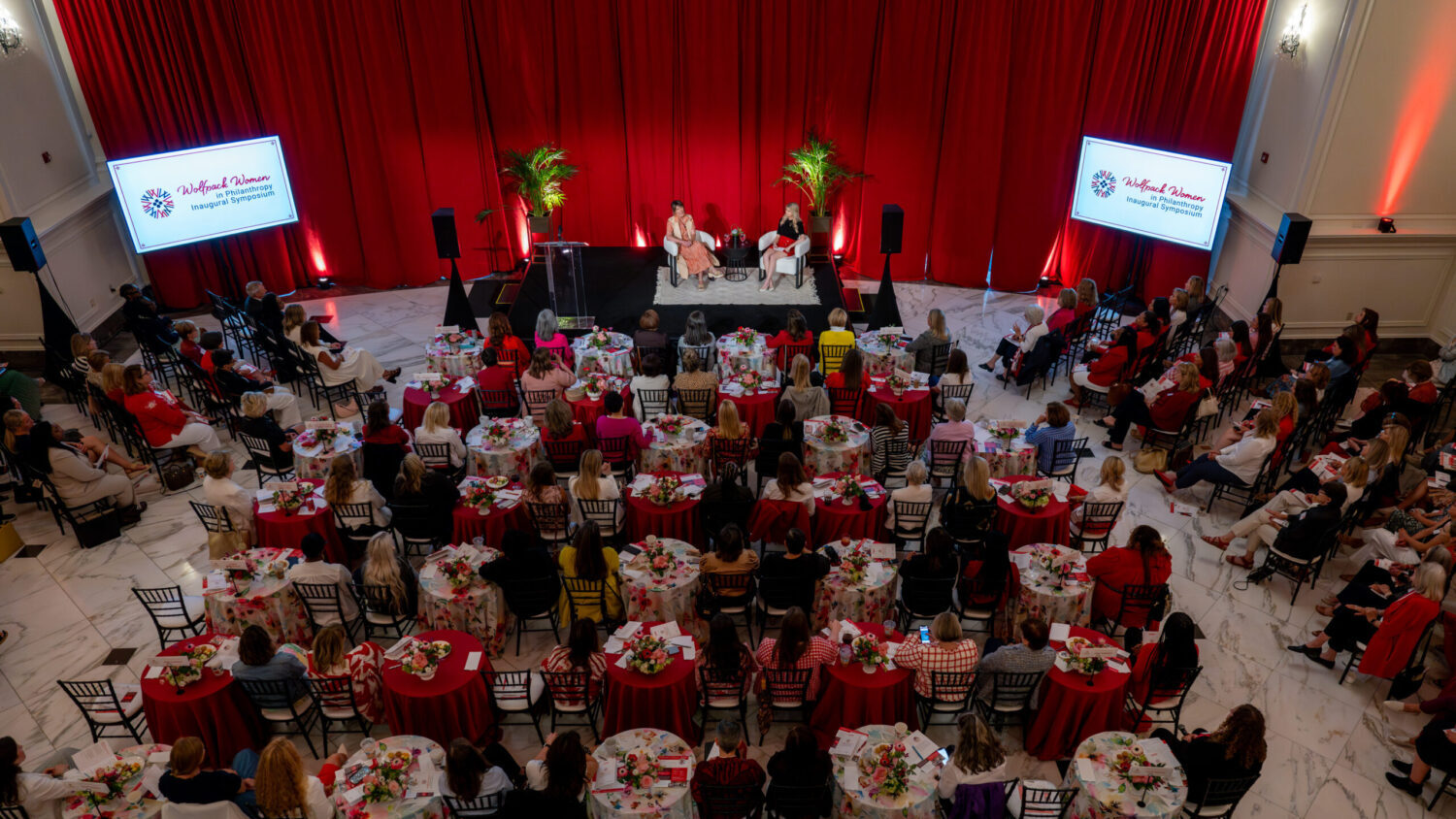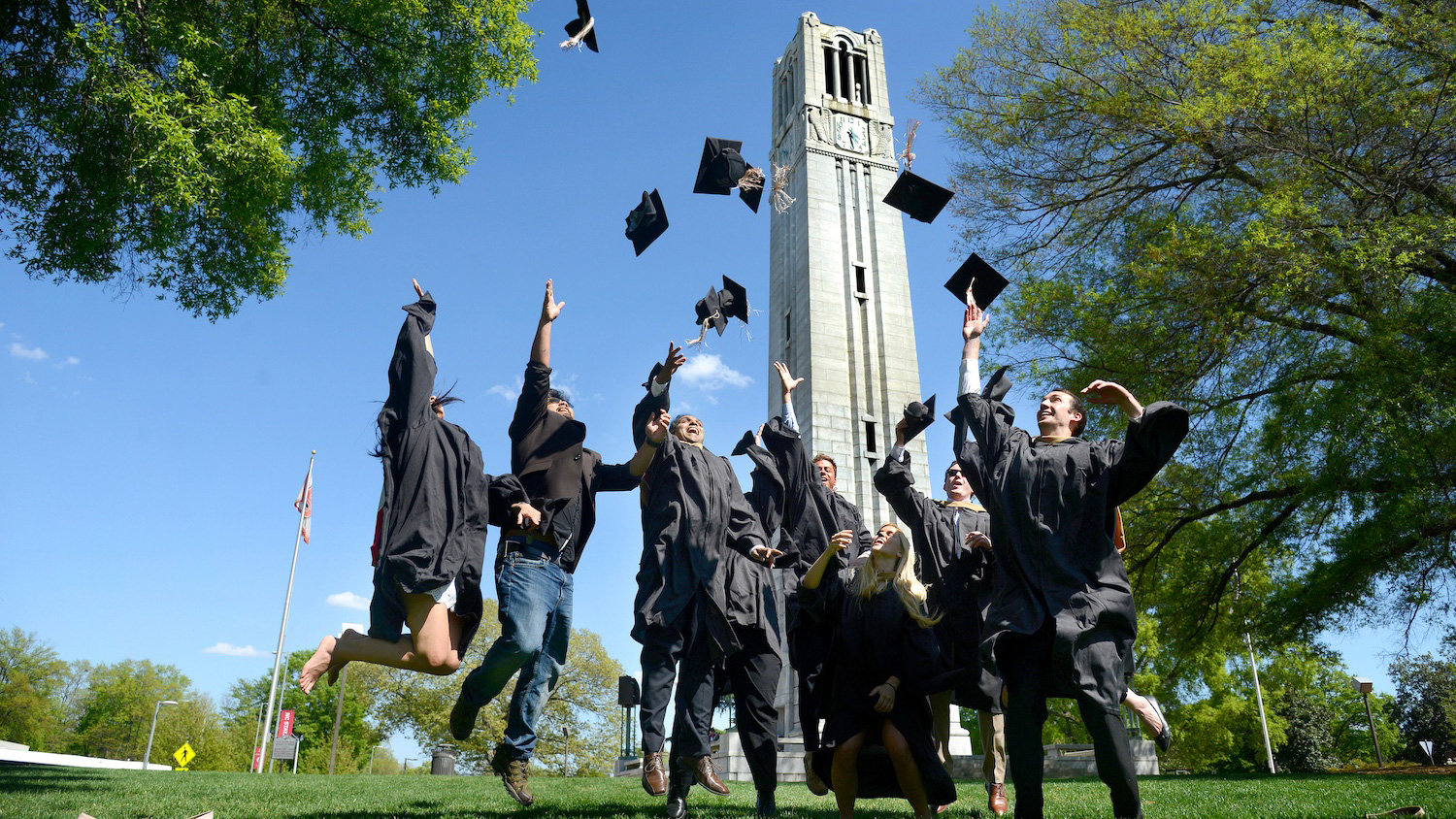Victoria Fuda ’21 knows better than most how the passion of the Pack can make an extraordinary difference.
“I didn’t know exactly what my passion was, but I knew that here I would have the opportunities to find it and transform that into a career,” Fuda said.
As an NC State student, Fuda has been active: a College of Natural Resources ambassador, Social Innovations Fellow, student library assistant and intramural soccer team player.
“This campus and its programs are all so special, and we have a diverse community with people from different backgrounds, personalities, everything. I saw it as a place where I could grow,” she said.
Sure enough, Fuda experienced an “aha” moment at the end of her first year at NC State that would transform her future — all because of a trip to Thailand, powered by private support.
The ‘Aha’ Moment
After finding an international volunteer program she was interested in, Fuda applied for the Ronald and Dale Terry Student Enrichment award, which was created in her college by Dr. and Mrs. Terry to provide students with extraordinary high-impact experiences beyond the classroom.
“It’s just so amazing because the Terry family is so dedicated to helping students have those amazing experiences and those amazing opportunities that not everyone gets to have,” Fuda said. “Money is a big factor, especially when you’re a college kid and you have all these dreams and goals.”
Her application won over the award review committee and Fuda was able to jet off to Chiang Mai, Thailand, in May 2019 to work on permaculture, education and conservation projects across multiple villages. She had no idea that she would come back from her trip on a new life path that not only combined her passions but also allowed her to make a difference.
Fuda formed relationships with the people she met in Thailand and learned more about their traditions, knowledge and needs. This intentional-based way of travel can be mind opening and for Fuda, who started out as an environmental science major, it proved life-changing.
“I want to help others, travel and really help the environment. I was so lucky and so happy because when I came back to NC State, I discovered our sustainable tourism program, which fit these passions perfectly,” said Fuda, now graduating this month with a parks, recreation and tourism management degree.
“It was an aha moment of ‘Oh, this is something I can actually do.’”
Seeing the Bigger Picture
Through her many travels, one thing remained clear to her: It is critical to travel with intention to avoid negative impact on other communities. For Fuda, this means embracing the cultures of the region one is visiting and leaving a positive impact.
From environmental to economic to social implications, Fuda says that her classroom and real-world experiences have shown her that travelers have the potential to tip the scales positively or negatively. And she wants to make sure that more people understand how to travel with this in mind.
“You always talk about the experiences you want to have while traveling: I want to be able to go to the local restaurants; I want to be able to go to places that aren’t filled with tourists. And then when I started studying sustainable tourism, I realized, oh, my goodness, who cares what I want to do?”
Through her sustainable tourism program and her conversations with people on her travels, Fuda learned about many issues that arise through unsustainable tourism.
“When a country or an area starts to get more popular, the big businesses come in. So the big hotels come in, the big restaurants come in, the big transportation companies, and that’s taking away jobs from all the locals,” Fuda explained. She said that overcrowding is another common issue, and one that might be more noticeable to people not studying the field.
“Through sustainable tourism, we look at how we can plan and develop these tourist locations to benefit the locals versus focusing on the traveler,” she said.
Travel as Transformation
Through the breadth of programming and experiences offered at NC State, Fuda found her passion and, thanks to donor support, was able to expand her knowledge and experience to prepare for a successful career in the field of sustainable tourism.
In fact, she already has a job lined up following graduation. Fuda is returning to her home state of Massachusetts to work for Education First Tours in Boston, the company that helped her on her first international trip. She will be paying that opportunity forward, helping young people start their own journeys as global citizens.
“I saw [NC State] as a place where I could grow.”
Since the start of the Think and Do the Extraordinary Campaign in 2016, donors have rallied behind funds to provide these kinds of exceptional experiences and extraordinary opportunities to every student who wants to go out and make a difference on our campus, in our state and, ultimately, in our global community.
And Fuda intends to do just that.
“I never would have truly realized the level of impact tourists can have without making relationships with local people on my travels. That’s why I am such a strong believer in helping others broaden their global perspectives and educating themselves on the world around us,” she said.
“There are so many big problems in this world, but every problem just takes a lot of people who are really passionate about creating change. No singular person can change the world, but little actions intertwine to make a big difference. That’s what I hope to do in my life.”
Victoria Fuda is a December 2021 graduate with a degree in parks, recreation and tourism management, focusing on sustainable tourism.
